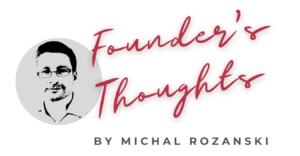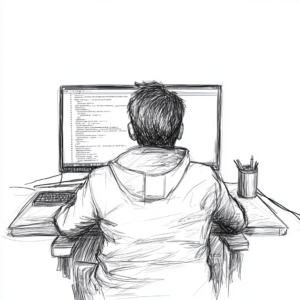Why Builders Hate Meetings?
October 21, 2024
Beneath the surface of the tech sector, a hidden struggle persists. On one side, we have a culture of frequent meetings, a core element of agile methodologies. On the other, there is a need for deep focus. Caught in the crossfire are the builders – programmers, designers, analysts – who need long periods of uninterrupted concentration to do their best work.
Meetings are useful. They help solve problems quickly and generate ideas, which is why managers like them. However, managers often overuse this tool. To understand why, let’s look at how they perceive time.
Time as Currency – Different Exchange Rates
Paul Graham, the founder of Y Combinator, observed that managers split their day into hour-long or half-hour slots, filling them with meetings. Status updates, pushing agendas forward, client calls, team check-ins – their calendars are a mosaic of these interactions. Adding another meeting or two isn’t a big deal as long as there’s a free slot. Their attention hops from one topic to another. And if they need more time for a task, they simply block off a few consecutive slots.
Builders work differently. They’re most productive when they have half a day or more of uninterrupted time. Solving a hard problem or writing complex code often takes several hours of continuous focus. A few hours broken up by meetings aren’t enough; they destroy productivity.
That’s why builders hate meetings. They’re much more expensive for them.
Both approaches to time work well for both groups. The problem comes when they collide.
Focus: A Limited Resource
Additionally, if you are a builder, more than time is needed. You work with attention. You can set aside half a day for a task, but you will get a little done if you’re constantly distracted by chat messages, social media notifications, phone calls, or emails.
Distractions are dangerous because they feel productive. Reading news feels like learning. But it’s an illusion. These interruptions take us away from our main work.
It’s easier to avoid distractions than to resist them. Just like it’s easier not to buy ice cream than to have it in your freezer and try not to eat it. Similarly, it’s more effective to silence notifications entirely than to ignore each ping. Blocking social media during work hours is more foolproof than relying on willpower to stay away.
Refactoring Productivity
Many meetings are a waste of time. They’re the corporate equivalent of empty calories – they make us feel busy but don’t accomplish much. We’ve forgotten that great work often happens alone.
To do creative work well, we need two things. One is structuring our day into uninterrupted blocks and working with our teams to cluster and have fewer, more focused meetings. Second, is setting up our workspaces to shield ourselves from distractions during these focused periods.
We, builders and managers alike, are increasingly defined not by what we do but by what we choose not to do.
Michal




